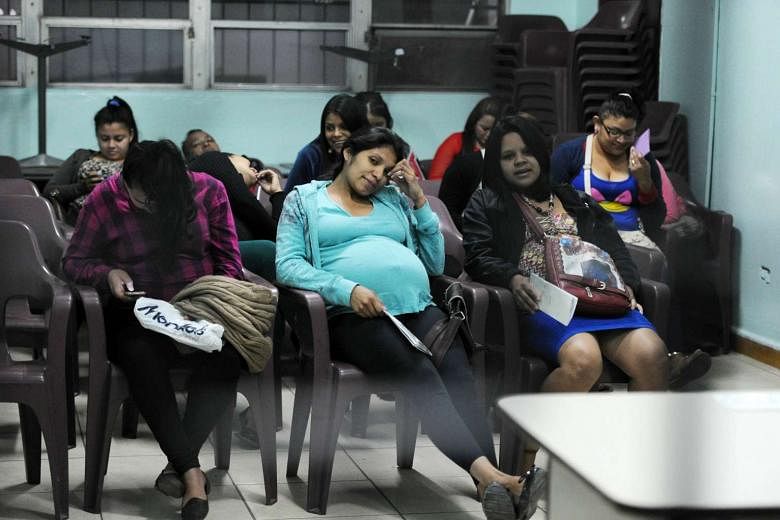(AFP) - Brazil warned pregnant women on Monday (Feb 1) to stay away from the Summer Olympics after the World Health Organisation declared an international emergency over the Zika virus, blamed for causing a surge in brain-damaged babies.
The UN health body said that a rise in cases of microcephaly - in which babies are born with an abnormally small head - was likely caused by the mosquito-borne virus, and declared the situation a "public health emergency of international concern". That prompted an unprecedented warning from Brazil, just six months from the Olympics opening ceremony on Aug 5 in Rio de Janeiro.
"The risk, which I would say is serious, is for pregnant women. It is clearly not advisable for you (to travel to the Games) because you don't want to take that risk," said president Dilma Rousseff's chief of staff, Mr Jaques Wagner.
Mr Wagner sought to downplay fears for Olympic athletes and fans who are not expectant mothers.
"I understand that no one needs to be afraid if you are not pregnant," he said.
International Olympic Committee president Thomas Bach said the WHO's declaration raises more awareness and provides "more resources to fight the virus". Olympic Committee officials "are in close contact" with the WHO and Olympic committees "around the world", said Mr Bach, speaking in Los Angeles.
"There is no travel ban," he said.
The Games "will also take place in winter time in Brazil and this is not the preferred breeding time for mosquitoes". These factors "make us very confident that at the time of the Olympic Games there will be good conditions for athletes and spectators".
Some health officials also blame the Zika virus for causing Guillain-Barre syndrome, a rare disorder in which the immune system attacks the nervous system, causing weakness and sometimes paralysis.
That syndrome directly affects Zika patients themselves. Most recover, but the syndrome is sometimes deadly.
Brazil was the first country to sound the alarm on the apparent link with birth defects, after health authorities noticed a surge in babies born with microcephaly.
It has since become the worst affected country, with some 4,000 suspected cases of microcephaly, of which 270 have been confirmed, up from 147 in 2014.
The outbreak has sown panic in the Americas, where the WHO says it is "spreading explosively" and predicts up to four million Zika cases this year alone.
WHO chief Margaret Chan said a meeting of health experts who make up the agency's emergency committee had agreed "a causal relationship between the Zika infection during pregnancy and microcephaly is strongly suspected, though not scientifically proven".
"The clusters of microcephaly and other neurological complications constitute an extraordinary event and a public health threat to other parts of the world," she said.
Jitters over the virus have spread to Europe and North America, where dozens of cases have been identified.
The WHO stressed the need to improve diagnostics and develop a vaccine for Zika.
There is currently no specific treatment for the virus, which causes flu-like symptoms and a rash.
Zika is transmitted by the Aedes aegypti mosquito, which also spreads dengue fever, and which is found everywhere in the Americas except Canada and Chile.

